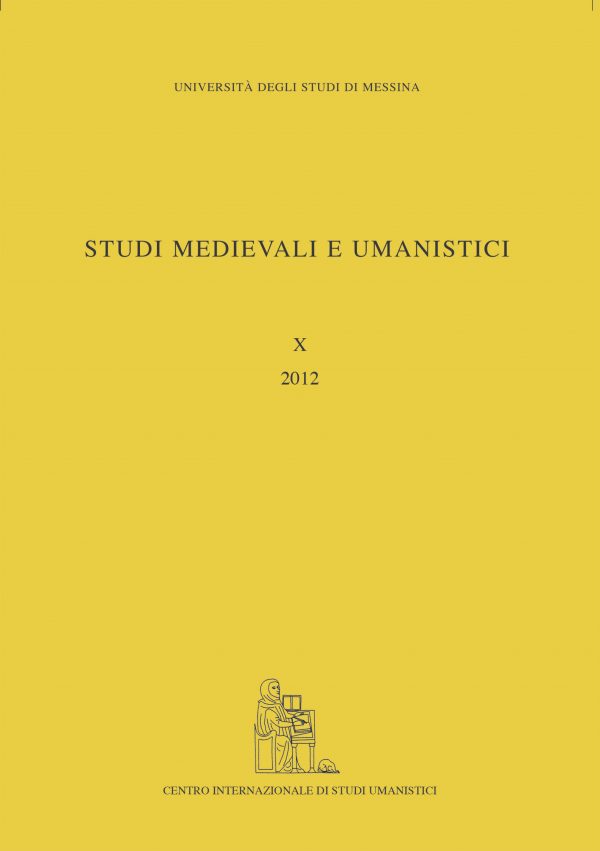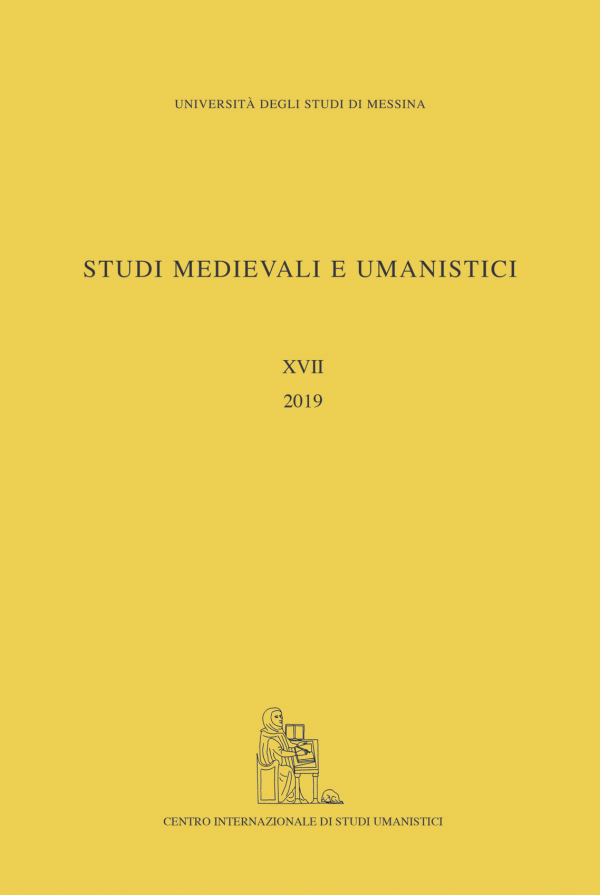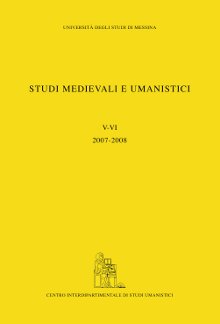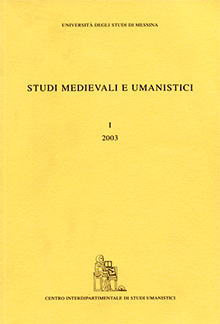Descrizione
XI (2013)
Messina, Centro Internazionale di Studi Umanistici, 2013, 245 pp., tavv. IV; 25 cm.
ISSN 2035-3774
INDICE GENERALE
Alessandro Daneloni, Spigolando ancora tra le note di viaggio del 1491: Poliziano, Procopio di Cesarea e altro
Rossella Bianchi, Battista Guarini lettore di autori antichi
Alessandra Tramontana, Il De corruptis nominibus di Pontico Virunio
Susanna Villari, Gli esordi della critica ariostesca: Lodovico Dolce e l’edizione del Furioso del 1535
TESSERE
A. Rollo, Chrysolorina III
L. Orlandi, In margine alla Ciropedia di Filelfo
A. Daneloni, Un enigmatico autografo di Bartolomeo Fonzio
A. Di Stefano, Un’elegia estravagante di Iacopo Sannazaro
Indice delle tavole
Indice dei manoscritti e delle fonti d’archivio
Indice dei nomi
ABSTRACT
ALESSANDRO DANELONI, Spigolando ancora tra le note di viaggio del 1491: Poliziano, Procopio di Cesarea e altro
Analytical outline and complete edition of Politian’s excerpts from Procopius of Caesarea’s Historiae and Theodoret of Cirrus’ Methodus (Clm 807, 75v-81r, 81v-82v). On 7 June 1491 the humanist, while staying at Bologna in 1491, transcribed these excerpts from two unknown manuscripts, which had belonged to Lianoro Lianori.
ROSSELLA BIANCHI, Battista Guarini lettore di autori antichi
The A. offers a comprehensive and rigorous survey of the research effort Battista Guarini devoted to the study of the classics. Through an in-depth analysis of some manuscripts and early prints (containing Cicero, Juvenal, Suetonius, Seneca, Servius, Catullus, Claudian) directly or indirectly related to the humanist, the article gives new evidence about the philological aspects of his scholarly profile.
ALESSANDRA TRAMONTANA, Il De corruptis nominibus di Pontico Virunio
The ms. Vat. lat. 10914 is an autograph document by Pontico Virunio that includes the De corruptis nominibus et obscuris locis auctorum – a broad topographic dictionary, organized by means of entries listed in alphabetical order. This essay examines origin and characteristics of a work that has never been completed and is extremely stratified. The analysis of the entries reveal the interests of the humanist, chiefly directed towards antiquitas, epigraphy and philology. But the treaty is also an interesting piece of a tradition of geographical repertories that, through Petrarca and Boccaccio, served as a blueprint for Biondo Flavio.
SUSANNA VILLARI, Gli esordi della critica ariostesca: Lodovico Dolce e l’edizione del Furioso del 1535
This paper explores Ariosto’s Orlando Furioso as printed by Pasini and Bindoni in 1535, with the collaboration of Ludovico Dolce. This edition brought about initial criticism on Ariosto, due to its front and end matter, in particular an Apologia for the poem against the attacks of detractors written by Ludovico Dolce. The Apologia, written during the early stage of debates on chivalric poetry and Orlando Furioso, helps to clarify Ludovico Dolce’s poetic ideology at the beginning of his literary career, and, additionally, to broaden understanding about how the 1532 edition of Orlando furioso was accepted by its early readers. In the appendix to this paper, the Apologia and front and end matter (dedicatory epistles, tables of contents and linguistic ‘tables’) will be reproduced and commented.
A. ROLLO, Chrysolorina III
A hand from the Renaissance Salento so far anonymous is here ascribed to Gabriel, a copyist from the entourage of Sergio Stiso, and the content of some grammars compiled in ‘Terra d’Otranto’ is examined.
L. ORLANDI, In margine alla Ciropedia di Filelfo
The interest for the text of Xenophon’s Cyropaedia accompanied Filelfo during his long career as an intellectual. The aim of this work is to shed new light on the codex Phillips 1627, the Greek text Filelfo used for his Latin translation; this manuscript contains autograph marginal annotations. Furthermore, in the second section of this paper new documentation about the copyist of the codex is provided.
A. DANELONI, Un enigmatico autografo di Bartolomeo Fonzio
This contribution focuses on the presence in Pietro Crinito’s ms. Clm 755 (ff. 153r-174r) of a latin list of names and main subjects from Strabo’s Geographia written by Bartolomeo Fonzio. Although its origin remains enigmatic, his index is of highest interest since it may derive from an unknown strabonian manuscript examined or owned by the humanist.
A. DI STEFANO, Un’elegia estravagante di Iacopo Sannazaro
The study is about one of Sannazaro’s elegies, that was not published in the 1535 Aldina, but that is held in ms. Viennese latino 9477 and partially in Vaticano latino 3361, in autograph transcriptions. The poem is addressed to a member of the Accademia Pontaniana, Fulvio Scala (perhaps to identify with Francesco Scala, high official at the Aragonese court) and it’s the occasion to celebrate the simple life in the country, without longing for immoderate wealth. The text is here published and translated and some remarks and suppositions are proposed to understand his aim and the real context that is represented under the poetic fiction.





